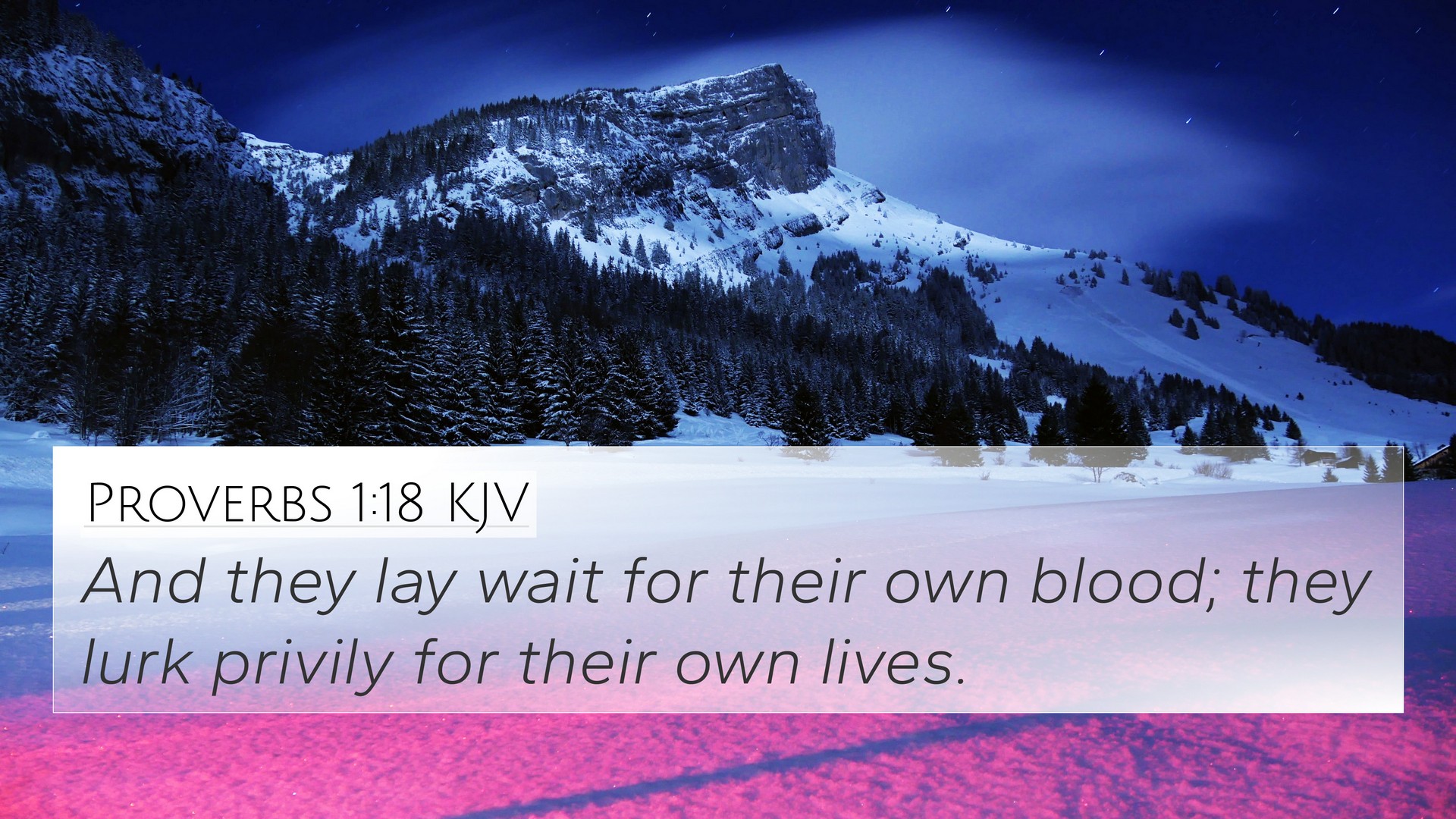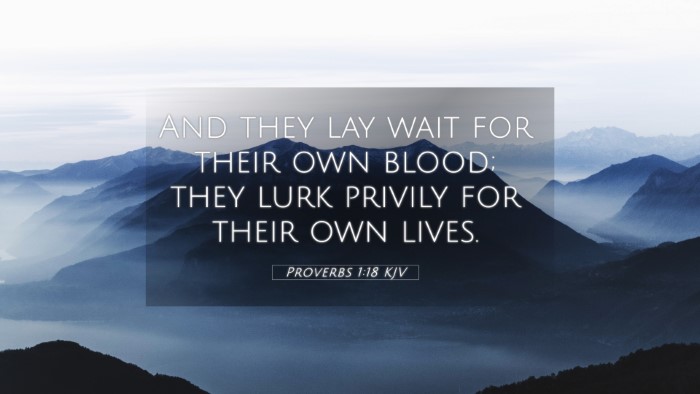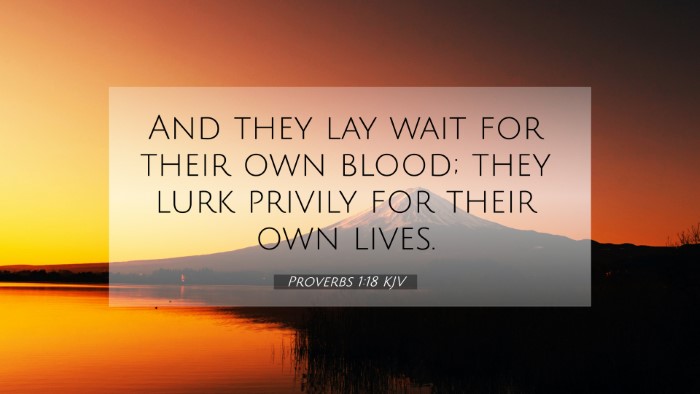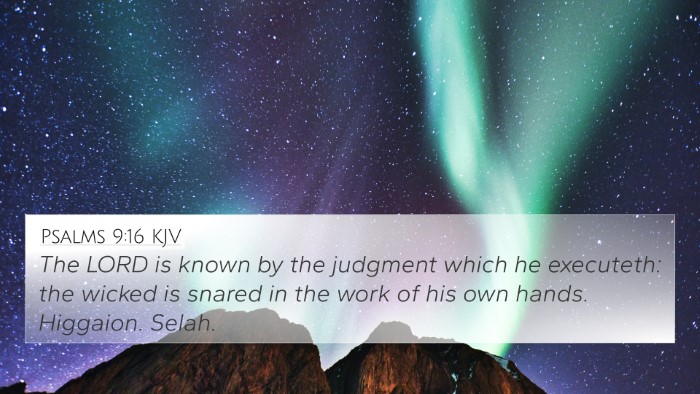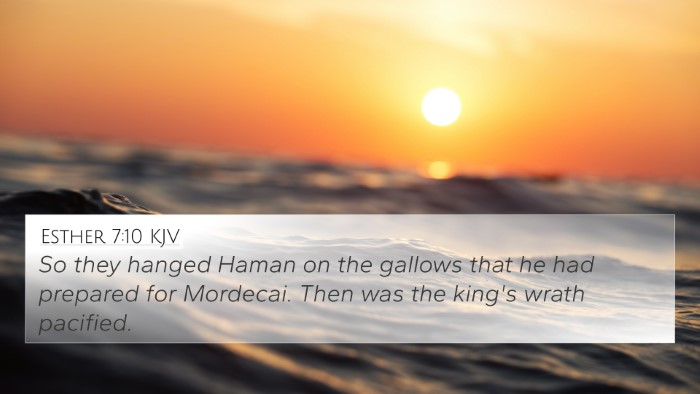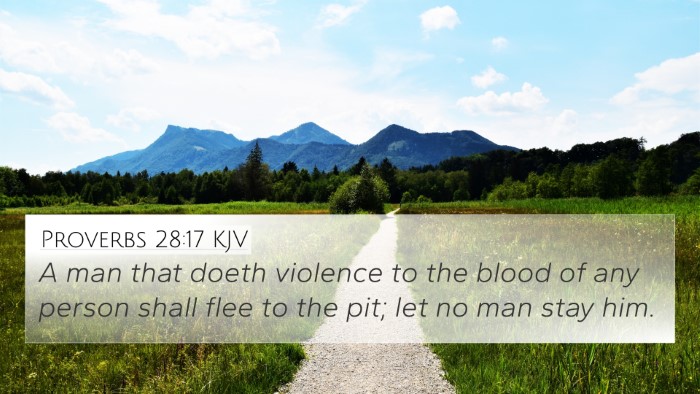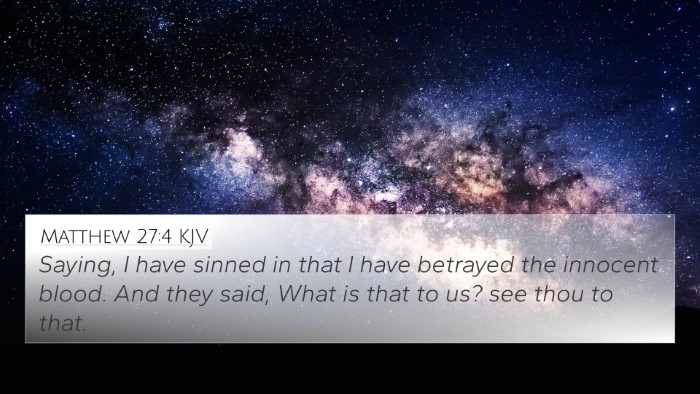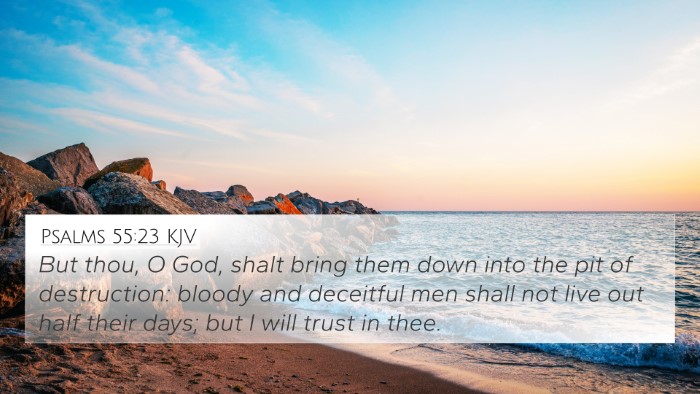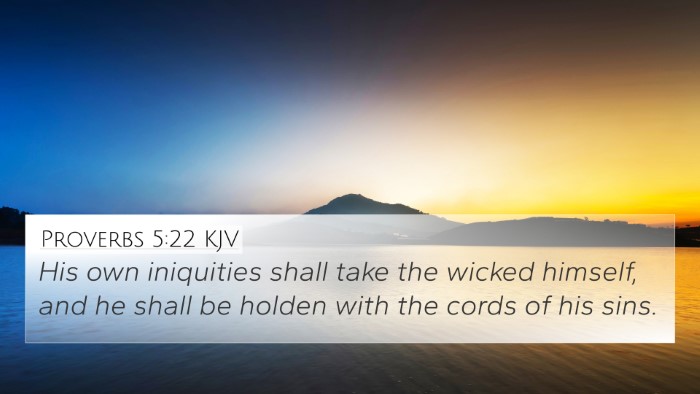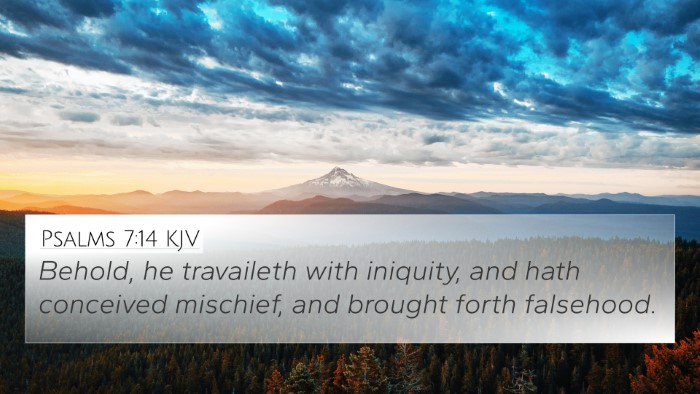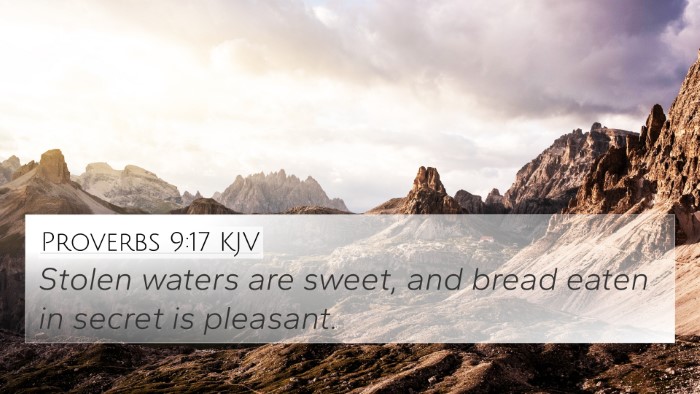Meaning and Interpretation of Proverbs 1:18
Proverbs 1:18 reads: "But they lie in wait for their own blood; they lurk secretly for their own lives." This verse serves as a caution against the deceptive practices of those who seek to harm others for personal gain.
Summary of Insights
Commenting on this verse, various public domain commentaries provide deeper insight into its meaning:
- Matthew Henry:
Henry explains that the verse illustrates the folly of wicked individuals who plot evil against others, ultimately leading to their own destruction. By attempting to ensnare the innocent, they ultimately ensnare themselves, highlighting a principle of divine justice.
- Albert Barnes:
Barnes notes that this proverb emphasizes the self-destructive nature of wickedness. Those who seek to harm others often set traps for themselves, which will lead to their downfall. This reflects the overarching moral structure of Proverbs, where wisdom brings life and folly results in death.
- Adam Clarke:
Clarke provides a perspective on the implications of such behavior, arguing that the 'blood' represents the violent consequences of sin. He asserts that those who engage in treachery are essentially participants in their own demise, as God’s justice inevitably prevails.
Connections between Bible Verses
This verse can be linked to several other passages that explore themes of wisdom and the consequences of wickedness:
- Proverbs 5:22 - "His own iniquities shall take the wicked himself, and he shall be holden with the cords of his sins."
- Proverbs 7:23 - "Till a dart strike through his liver; as a bird hasteth to the snare, and knoweth not that it is for his life."
- Proverbs 11:5 - "The righteousness of the perfect shall direct his way: but the wicked shall fall by his own wickedness."
- Galatians 6:7 - "Be not deceived; God is not mocked: for whatsoever a man soweth, that shall he also reap."
- Job 4:8 - "Even as I have seen, they that plow iniquity, and sow wickedness, reap the same."
- Psalm 7:15 - "He made a pit, and digged it, and is fallen into the ditch which he made."
- Psalm 9:16 - "The Lord is known by the judgment which he executeth: the wicked is snared in the work of his own hands."
Thematic Bible Verse Connections
Proverbs 1:18 serves as a thematic nexus within the broader biblical narrative regarding the nature of sin and the human condition:
- Consequences of Actions: Many verses in the Bible reflect the principle that one's actions have consequences. The narrative of sowing and reaping can be traced across both Old and New Testaments.
- Divine Justice: Biblical texts often emphasize that God's justice will manifest against evildoers, as seen in verses linked with divine retribution.
- Obedience to Wisdom: The contrast between wisdom and folly is a recurring theme, instructing readers to seek righteousness and reject wickedness.
Tools for Bible Cross-Referencing
For those wishing to dive deeper into exploring connections between scripture, several tools can be valuable:
- Bible Concordance: A helpful tool for finding specific terms and references throughout scripture.
- Bible Cross-Reference Guide: Guides that outline links between different verses.
- Cross-Reference Bible Study: A method of studying the Bible that highlights thematic and contextual similarities between verses.
- Bible Reference Resources: Materials available that help in locating and understanding the connection between biblical texts.
Conclusion
In summary, Proverbs 1:18 encapsulates a vital truth that resonates throughout scripture: the notion that pursuing wickedness leads to self-destruction. This verse, along with its connections to other biblical texts, offers profound insight into the moral fabric of the Bible and the Lord's justice. As readers engage with this verse, they are encouraged to seek wisdom and consider the consequences of their actions, reinforcing the importance of righteousness.
